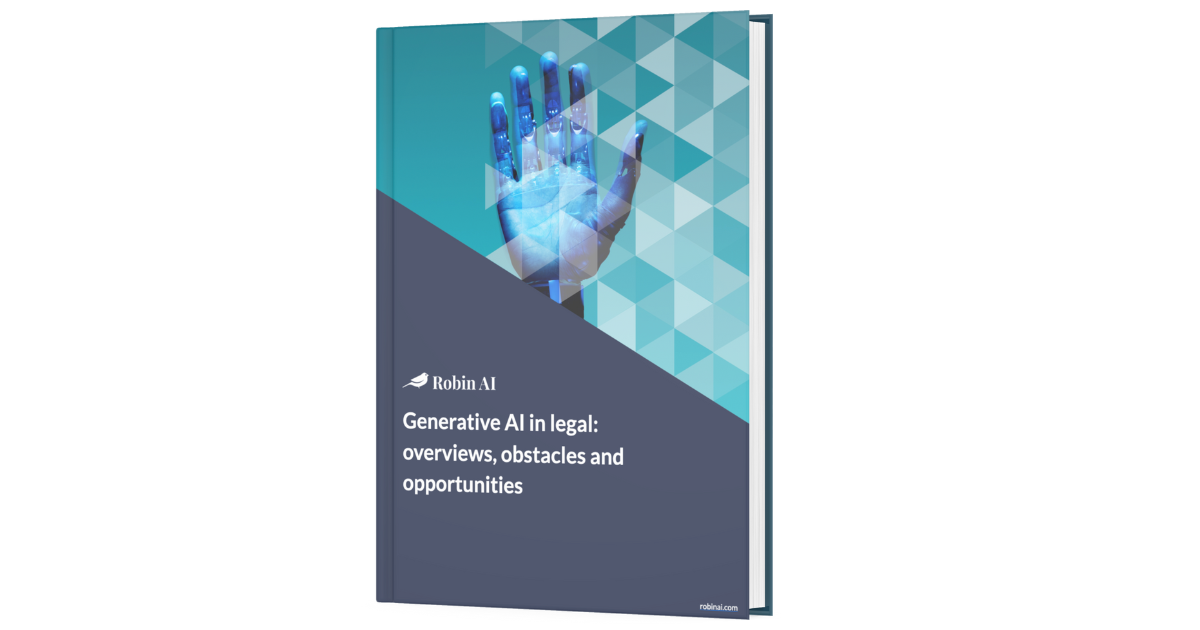Large Language Models in the Legal Industry
February 28, 2023

Large language models (LLMs) are taking the world by storm with their ability to generate human-like text and perform tasks requiring logical reasoning and general knowledge. In this blog post, we're diving into the rise of LLMs and their potential impact on the legal industry. At Robin AI, we're at the forefront of this transformation, partnering with Anthropic to integrate these models into our contract platform. If you're interested in learning about the different ways AI is transforming the legal industry, keep reading for all the exciting developments happening at Robin AI.
Rise of large language models
Less than one week after launching, OpenAI’s ChatGPT had more than one million users. For those who have played with ChatGPT its popularity is no surprise - it is an incredibly impressive piece of software. Its user interface is simple, nothing more than a back-and-forth dialogue with an AI model. But what is so impressive is the content it generates using Large Language Models, and what excites us are the potential use cases in the legal industry.
While LLMs have been around for a few years, the recent proliferation of interest has come from a new generation of models which have hundreds of billions of parameters, and are trained on many terabytes of text data from all over the internet. These models have proven to be capable of performing tasks that, when performed by a person, require logical reasoning, general knowledge and a creative spark. In the last year the quality of the best LLMs has reached the point where they can be used in real business scenarios.
If you are not sure where to start, read our white paper on generative AI in the legal industry. The paper includes real-world examples and insights on how legal teams are already leveraging generative AI.
Featured resource: Generative AI in legal - obstacles and opportunities

Robin AI & Anthropic - The legal industry & LLMs
We’ve partnered with Anthropic, a company focused on responsible and safe AI, and have integrated their LLMs into our platform to ensure that our AI is as reliable as possible. A lot of legal work consists of manipulating words, by reading, writing and editing text data. Can LLMs be used to help automate this kind of work? And should they? Our view is, in short, yes - but within limits. By being aware of what LLMs are good at, and not so good at (yet) we can harness them in the legal industry to perform useful tasks and make knowledge work done by humans easier and faster.
What do LLMs actually do?
Given a passage of text, LLMs predict the text that is most likely to follow. This may at first seem a narrow application. But a model which is sufficiently good at the word-prediction task can be used to perform many other tasks. Consider the text: “The capital city of France is”. What is the word that is most likely to come next in this sentence? It depends on where this sentence came from and who is saying it but a good answer would be “Paris”. If your LLM is trained on a dataset which contains some mention of Paris being the capital of France then it will probably produce “Paris” as a likely next word in that sentence. And so even though this model was not explicitly trained to answer questions on geography, it can do so, given the right choice of initial text (called a prompt). And it turns out that lots of useful work can be framed as a next-word prediction task with a clever choice of prompt.
So what does that mean for the legal industry and legal technology?
Using LLMs in Robin AI’s contract editor
Robin AI has integrated Anthropic’s model “Claude” to provide advanced contract editing capabilities. Our software leverages Claude and Robin AI’s other machine learning models to analyse contracts and suggest edits in real time, based on clients' preferred positions. This enables legal teams to efficiently review and approve changes without going through the entire contract line by line. Sign up for a free account now to try Review with your own contracts.
Impact of LLMs on the legal industry
Although many legal tasks can be posed in terms of generating text, we should remember that LLMs do not reason in the same way that people do. They can be susceptible to new and surprising types of error, making mistakes that a human would not. This is not always a problem - in some applications, creativity or speed are more important than accuracy, and in those cases LLMs are great tools for generating content at low cost. But legal work is valuable and has high standards. That’s why at Robin we don’t just use AI alone to do legal work. Instead, we built it into our end-to-end platform, so that a lawyer can use AI the way they might work with a colleague, by reviewing and checking their work.
The legal industry is worth over one trillion dollars per year, and a significant proportion of that consists of working with text in contracts. Our view is that LLMs will be a core component of our product’s future as a new type of software infrastructure for the legal industry. Human lawyers will still play a key role in directing and reviewing the work of AI, but, if we are right, technology will make legal work vastly more efficient and accessible than it has ever been before.
You can try out Robin’s application of the model yourself by signing up for a free account.

